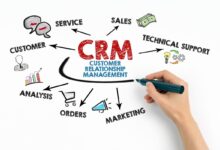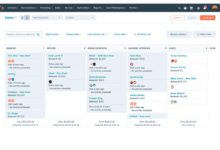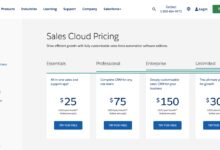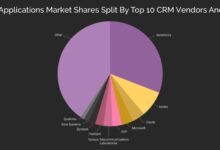CRM Software Cost: 7 Shocking Truths You Can’t Ignore in 2024
Thinking about CRM software cost? You’re not alone. Businesses worldwide are weighing price against value—and the truth might surprise you.
CRM Software Cost: Breaking Down the Basics

Understanding CRM software cost starts with knowing what you’re actually paying for. Customer Relationship Management (CRM) tools are no longer just for enterprise giants. From solopreneurs to multinational corporations, CRM systems help manage leads, automate sales, track customer interactions, and boost retention. But with so many options, pricing can feel like a maze.
What Is CRM Software?
CRM software is a digital platform designed to centralize customer data, streamline communication, and improve sales and marketing efficiency. Think of it as a command center for your customer relationships. Whether you’re tracking a lead from first contact to close or analyzing customer behavior for retention strategies, CRM systems make it possible.
Popular platforms like Salesforce, HubSpot, and Zoho CRM offer varying levels of functionality, which directly impacts CRM software cost.
Why CRM Pricing Varies So Much
The CRM software cost isn’t one-size-fits-all. It varies based on features, deployment type (cloud vs. on-premise), number of users, and integration needs. For example, a basic CRM for a small team might cost $12/user/month, while an enterprise-grade solution with AI analytics and custom workflows can exceed $300/user/month.
- Feature depth: More automation, reporting, and AI = higher cost
- User count: Most CRMs charge per user, per month
- Deployment: Cloud-based is usually subscription-based; on-premise involves upfront licensing
- Customization: Tailored fields, dashboards, and workflows increase complexity and cost
“The average small business spends between $12 and $50 per user per month on CRM software, but total cost of ownership can be 3x higher when factoring in training and integration.” — Gartner, 2023
Types of CRM Systems and Their Cost Implications
Not all CRM systems are created equal. The type you choose significantly affects CRM software cost. Let’s explore the three main categories and how they influence your budget.
Operational CRM
Operational CRMs focus on automating core business processes like sales, marketing, and customer service. They’re ideal for companies looking to streamline workflows and improve efficiency.
Examples include Salesforce Sales Cloud and HubSpot CRM. These systems often come with tiered pricing. The basic plan might be free or low-cost, but advanced features like lead scoring or workflow automation require upgrades.
- Best for: Sales teams, marketing departments
- Typical CRM software cost: $12–$150/user/month
- Key features: Contact management, email integration, task automation
Analytical CRM
Analytical CRMs are all about data. They collect customer data from multiple touchpoints and use analytics to improve decision-making. These systems are perfect for businesses focused on customer insights and retention strategies.
Tools like Microsoft Dynamics 365 and Oracle CX offer robust reporting and AI-driven analytics. However, this power comes at a premium.
- Best for: Data-driven organizations, customer experience teams
- Typical CRM software cost: $50–$300+/user/month
- Key features: Predictive analytics, customer segmentation, churn prediction
Collaborative CRM
Also known as customer-facing CRM, collaborative systems improve communication between departments and with customers. They integrate channels like email, chat, phone, and social media into a unified interface.
Zendesk Sell and Freshsales are examples. These CRMs often include built-in communication tools, which can reduce the need for third-party apps—but increase the base price.
- Best for: Support teams, omnichannel businesses
- Typical CRM software cost: $15–$100/user/month
- Key features: Shared customer profiles, omnichannel support, internal collaboration tools
Hidden Costs Behind CRM Software Cost
The sticker price is just the beginning. Many businesses underestimate the true cost of CRM implementation because they overlook hidden expenses. Let’s uncover the real CRM software cost beyond the monthly subscription.
Implementation and Setup Fees
Some CRM vendors charge setup fees, especially for on-premise or enterprise solutions. These can range from a few hundred to tens of thousands of dollars, depending on complexity.
For example, Salesforce implementation can cost between $5,000 and $50,000 if you hire a consultant. Even cloud-based systems may require data migration, user training, and workflow configuration—services that aren’t always included in the base price.
- Data migration: Transferring contacts, deals, and history from old systems
- Custom field setup: Aligning CRM fields with your business processes
- Workflow automation: Building rules and triggers for efficiency
Integration with Other Tools
Most businesses use multiple tools—email marketing, accounting, ERP, etc. Integrating your CRM with these systems often requires middleware or custom APIs, which add to the CRM software cost.
Platforms like Zapier or native integrations (e.g., HubSpot + Shopify) can simplify this, but advanced integrations may need developer time. For instance, syncing CRM data with your ERP system could cost $2,000–$10,000 in development and maintenance.
- Third-party connectors: Zapier, Make (Integromat)
- Native integrations: Often included in higher tiers
- Custom API development: High cost, high flexibility
Training and Adoption Costs
A CRM is only as good as the team using it. Poor adoption is one of the top reasons CRM projects fail. Training employees takes time and money.
Internal training sessions, video tutorials, and external consultants all contribute to the total CRM software cost. According to Nucleus Research, companies that invest in CRM training see a 152% higher return on investment.
- Onboarding new users: 2–8 hours per employee
- Ongoing support: Help desks, FAQs, refresher courses
- Change management: Encouraging team buy-in and usage
Subscription Models: How They Affect CRM Software Cost
Most modern CRMs use subscription-based pricing. But not all subscriptions are equal. Understanding the models helps you predict long-term CRM software cost.
Monthly vs. Annual Billing
While monthly plans offer flexibility, annual contracts usually come with a discount—often 10–20%. For example, HubSpot’s Sales Hub costs $50/user/month billed monthly, but drops to $40/user/month when billed annually.
However, annual contracts lock you in. If your needs change, you might be stuck paying for unused features. Always evaluate your growth trajectory before committing.
- Monthly: Flexible, higher per-unit cost
- Annual: Cheaper per month, requires upfront payment
- Multi-year: Rare, but offers deepest discounts
Per-User vs. Flat-Rate Pricing
Most CRMs charge per user. But some offer flat-rate pricing for small teams. For example, Zoho CRM’s Standard plan is $14/user/month, but if you have 5 users, that’s $70/month. In contrast, Insightly offers a flat $29/month for up to 2 users.
For growing teams, per-user pricing scales linearly. Flat-rate models can be cost-effective for small businesses but become expensive as you add users.
- Per-user: Scales with team size, common in enterprise tools
- Flat-rate: Budget-friendly for solopreneurs and micro-teams
- Tiered access: Different prices for sales, marketing, and admin roles
Freemium vs. Free Trial
Many CRMs offer a free version (freemium) or a time-limited trial. Freemium models like HubSpot’s free CRM include core features but limit automation and reporting. Free trials (e.g., 14–30 days) let you test premium features before committing.
While freemium reduces initial CRM software cost, it may lack scalability. Free trials help evaluate fit but don’t reduce long-term costs.
- Freemium: Ongoing free access with limitations
- Free trial: Full access for a limited time
- Feature gating: Vendors use this to push upgrades
Top CRM Providers and Their Pricing Breakdown
Let’s compare some of the most popular CRM platforms and their CRM software cost structures. This will help you identify which fits your budget and needs.
Salesforce: The Enterprise Leader
Salesforce dominates the CRM market with powerful customization and AI features. But it’s also one of the most expensive.
- Sales Cloud Essentials: $25/user/month (billed annually)
- Sales Cloud Professional: $75/user/month
- Sales Cloud Enterprise: $150/user/month
- Unlimited: $300/user/month
Additional costs include implementation, training, and add-ons like Einstein AI ($50+/user/month). For more details, visit Salesforce Pricing.
HubSpot CRM: Best for Startups and SMBs
HubSpot offers a generous free plan and scalable paid tiers. It’s user-friendly and integrates well with marketing tools.
- Free CRM: $0 (unlimited users, basic features)
- Sales Hub Starter: $18/user/month
- Sales Hub Professional: $45/user/month
- Sales Hub Enterprise: $120/user/month
Marketing, Service, and CMS hubs are priced separately, so total CRM software cost can rise quickly. Learn more at HubSpot CRM Pricing.
Zoho CRM: Budget-Friendly Powerhouse
Zoho CRM delivers strong functionality at a lower price point, making it ideal for cost-conscious businesses.
- Free Edition: $0 (up to 3 users)
- Standard: $14/user/month
- Professional: $23/user/month
- Enterprise: $40/user/month
- Ultimate: $52/user/month
Zoho also offers bundled suites (e.g., Zoho One) for $37/user/month, which includes 40+ apps. Check Zoho CRM Pricing for full details.
How to Reduce CRM Software Cost Without Sacrificing Value
You don’t need to overspend to get a powerful CRM. With smart planning, you can minimize CRM software cost while maximizing ROI.
Start with a Clear Use Case
Define exactly what you need the CRM for. Is it lead tracking? Sales automation? Customer support? A clear use case prevents feature bloat and unnecessary upgrades.
For example, if you only need contact management and email tracking, a free CRM like HubSpot or Zoho might suffice—no need for Salesforce Enterprise.
- Map your sales process
- List must-have vs. nice-to-have features
- Avoid overbuying for future needs that may never materialize
Negotiate with Vendors
Many CRM vendors are open to negotiation, especially for annual contracts or large teams. Don’t hesitate to ask for discounts, extended trials, or included training.
For instance, Salesforce partners often offer bundled services at reduced rates. Similarly, Zoho may provide custom pricing for nonprofits or educational institutions.
- Ask for annual discounts
- Request free onboarding
- Benchmark against competitors to leverage better deals
Use Open Source or Low-Code Alternatives
If budget is tight, consider open-source CRMs like SuiteCRM or low-code platforms like Airtable with CRM templates. These require more setup but can drastically reduce CRM software cost.
SuiteCRM is free to download and use, though you’ll need hosting and technical support. Airtable offers a free plan and scales affordably, making it a flexible option for startups.
- SuiteCRM: Free core, $99+/month for support
- Airtable: Free to $20+/user/month
- Odoo CRM: Free community version, $24/user/month for enterprise
Future Trends Impacting CRM Software Cost
The CRM landscape is evolving fast. Emerging technologies and market shifts are reshaping CRM software cost models. Staying ahead of these trends can help you make smarter investments.
AI and Automation Driving Up Prices
AI-powered features like predictive lead scoring, chatbots, and sentiment analysis are becoming standard in premium CRMs. While they add value, they also increase CRM software cost.
For example, Salesforce Einstein AI adds $50–$75/user/month. HubSpot’s AI tools are included in higher tiers, pushing users toward pricier plans. Expect AI to become a major cost driver in the next 3–5 years.
- AI sales assistants
- Automated data entry
- Intelligent forecasting
Consolidation of CRM Suites
Vendors are bundling CRM with marketing, sales, and service tools into all-in-one suites. While this improves integration, it often means paying for features you don’t use.
Zoho One, Salesforce Growth Suite, and HubSpot’s full stack are examples. These bundles can save time but may increase CRM software cost if you only need CRM functionality.
- Better integration
- Higher sticker price
- Reduced need for third-party apps
Increased Focus on Data Privacy and Compliance
With GDPR, CCPA, and other regulations, CRM vendors are investing more in security and compliance. These costs are often passed on to customers.
Expect to see higher pricing for CRMs that offer advanced data encryption, audit trails, and compliance reporting—especially in healthcare, finance, and legal sectors.
- GDPR-ready features
- Data residency options
- Compliance certifications (SOC 2, ISO 27001)
What is the average CRM software cost for a small business?
The average CRM software cost for a small business ranges from $12 to $50 per user per month. Basic plans from providers like Zoho or HubSpot can be even lower, with free tiers available. Total annual cost for a 5-person team typically falls between $720 and $3,000, not including implementation or training.
Is there a CRM with no hidden fees?
While no CRM is entirely free of hidden costs, transparent vendors like Zoho and HubSpot clearly list their pricing online. To avoid surprises, always ask about setup fees, data migration, and integration costs before signing a contract.
Can I get a CRM for free?
Yes, several CRMs offer free plans with core features. HubSpot CRM, Zoho CRM (up to 3 users), and Freshsales Free are excellent options for startups and solopreneurs. However, free versions often lack automation, reporting, and customization.
How much does Salesforce really cost?
Salesforce starts at $25/user/month for Essentials, but real-world costs are higher. With add-ons, implementation, and training, the total CRM software cost for a small team can easily exceed $100/user/month. Enterprise deployments often cost $50,000+ annually.
What factors increase CRM software cost the most?
The biggest cost drivers are number of users, advanced features (like AI and automation), integration needs, and implementation services. Customization and ongoing support also significantly impact total cost of ownership.
Understanding CRM software cost goes far beyond the monthly subscription. From hidden implementation fees to AI-driven pricing models, the real expense involves both direct and indirect factors. By evaluating your needs, comparing vendors, and planning for long-term use, you can choose a CRM that delivers value without breaking the bank. The key is to look beyond the sticker price and focus on total cost of ownership and ROI. Whether you’re a startup or a growing enterprise, the right CRM strategy can turn customer data into a competitive advantage.
Further Reading:



